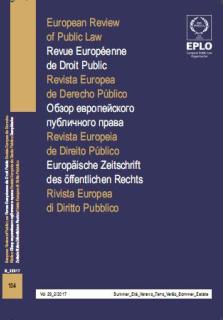
Terrorism and the Law
A Comparative Overview
Professor, Global Law Faculty, NYU Law School,
Honorary Fellow of the American Academy of Arts and Sciences, Former Prime Minister of Italy, Honorary President of the Board of Trustees of the European Law and Governance School of the EPLO, currently Judge of the Italian Constitutional Court
It is true that there are circumstances due to which protecting security implies adopting measures that limit individual liberties, while on the other hand security is considered as a pre-requisite for individual freedoms to be exercised. Against this picture, prevention of terrorist attacks becomes the absolute priority and consequently not only the usual guarantees of individual freedoms but also their space may be reduced. A distinction as far as antiterrorist measures are concerned is to be made between the States - such as Italy and Russia - that have adapted their domestic law to the new needs, and those - substantially the US - that have applied (and also adapted) the international law of war. Some principles such as the principle of legality, habeas corpus or even the international law of war are under strain in the context of the fight against terrorism; the Courts however have drawn a few red lines that cannot be crossed. It would be unthinkable not to use the law in the fight against terrorism; it would be moreover unreasonable, in using the law and other resources in this context, to do it without cooperation with the other States similarly committed to fighting terrorism.
Il est vrai qu’il existe des circonstances qui font que la protection de la sécurité implique l’adoption de mesures limitant les libertés individuelles, tandis que d’un autre côté, la sécurité est considérée comme une condition préalable à l’exercice des libertés individuelles. Cependant, la prévention des attaques terroristes devient la priorité absolue et, par conséquent, non seulement les garanties habituelles des libertés individuelles mais aussi leur espace doivent être réduits. Concernant les mesures antiterroristes, il convient de faire une distinction entre les Etats - comme l’Italie et la Russie - qui ont adapté leur droit interne aux nouveaux besoins, et ceux - essentiellement les Etats-Unis - qui ont appliqué (et aussi adapté) le droit international de la guerre. Certains principes tels que le principe de légalité, l’habeas corpus ou même le droit international de la guerre sont mis à rude épreuve dans le contexte de la lutte contre le terrorisme; cependant, les tribunaux ont tracé certaines lignes rouges à ne pas franchir. Il serait impensable de ne pas utiliser le droit dans la lutte contre le terrorisme; il serait en outre déraisonnable, dans l’utilisation du droit et d’autres ressources dans ce contexte, de le faire sans coopérer avec les autres Etats impliqués de la même manière dans la lutte contre le terrorisme.
* This text is based on an open lecture that the author gave in Moscow on April 17, 2017, to the students of the Law School of the Russian Academy of National Economy and Public Administration, on the occasion of the inauguration of a library dedicated in European and International Law hosting EPLO editions and of the signing of an agreement for the establishment of a Euro-Russian International Center for Legal Studies and Programs. Giuliano Amato has accepted the position of the Ηonorary Scientific Director of the Center.





















